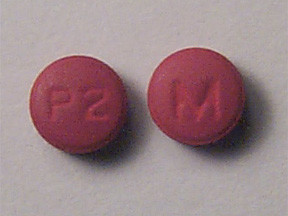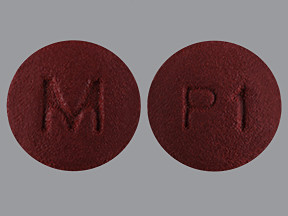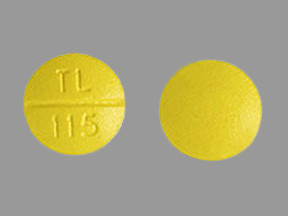PROCHLORPERAZINE - ORAL
PHONETIC PRONUNCIATION: (PROE-klor-PER-a-zeen)
COMMON BRAND NAME(S): Compazine
GENERIC NAME(S): prochlorperazine maleate
Uses
USES: This medication is used to treat severe nausea and vomiting from certain causes (for example, after surgery or cancer treatment). Prochlorperazine belongs to a class of drugs known as phenothiazines. This medication is not recommended for use in children younger than 2 years or in children going through surgery.
How to use PROCHLORPERAZINE - ORAL
HOW TO USE: Take this medication by mouth with or without food as directed by your doctor, usually 3 to 4 times daily. The dosage is based on your age, medical condition, and response to treatment. In children, the dosage may also be based on weight. Do not increase your dose or take this medication more often than directed. Tell your doctor if your condition persists or worsens.
Side Effects
Precautions
Interactions
Overdose
Images
Reviews
Faq for PROCHLORPERAZINE - ORAL
Prochlorperazine is an oral medication used to treat nausea, vomiting, and dizziness caused by certain medical conditions such as migraines, inner ear problems, and chemotherapy.
Prochlorperazine belongs to a class of medications called phenothiazines. It works by blocking certain dopamine receptors in the brain, which helps to decrease nausea and vomiting.
Prochlorperazine should be taken exactly as prescribed by your doctor. It can be taken with or without food. It is important to swallow the tablet whole and not crush or chew it.
Common side effects of Prochlorperazine include drowsiness, dizziness, dry mouth, constipation, and blurred vision. If these side effects persist or worsen, it is important to inform your doctor.
Prochlorperazine is generally not recommended for use in children under the age of 2. The safety and effectiveness of the medication in children older than 2 years have not been established.
Prochlorperazine should be used with caution during pregnancy, as it may cause harm to the unborn baby. It is also excreted in breast milk, so it is important to consult with your doctor before taking Prochlorperazine while breastfeeding.
Prochlorperazine may interact with other medications, including certain antibiotics, antihistamines, and antidepressants. It is important to inform your doctor about all the medications you are taking, including over-the-counter drugs and herbal supplements.
Prochlorperazine can start working within 30 minutes to 1 hour after taking the medication. The duration of action may vary depending on the individual and the condition being treated.
It is recommended to avoid or limit alcohol consumption while taking Prochlorperazine as it may increase the risk of side effects such as drowsiness and dizziness.
Warning
WARNING: There may be a slightly increased risk of serious, possibly fatal side effects (such as heart failure, fast/irregular heartbeat, pneumonia) when this medication is used by older adults with dementia. This medication is not approved for the treatment of dementia-related behavior problems. Discuss the risks and benefits of this medication with the doctor.
Disclaimer
IMPORTANT: HOW TO USE THIS INFORMATION: This is a summary and does NOT have all possible information about this product. This information does not assure that this product is safe, effective, or appropriate for you. This information is not individual medical advice and does not substitute for the advice of your health care professional. Always ask your health care professional for complete information about this product and your specific health needs.



No Reviews Yet